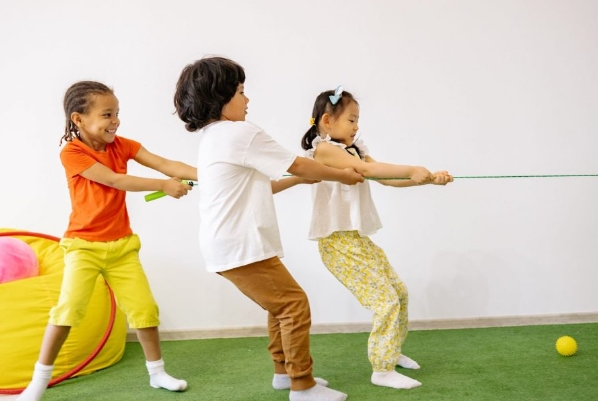Cooperative play is when individuals come together to work towards a common goal or objective. This form of play encourages teamwork, communication, and problem-solving skills.
Building Stronger Relationships
By playing cooperatively, individuals can strengthen their relationships with one another. Working towards a common goal can help build trust and camaraderie among team members, fostering a sense of unity and support.
Improving Communication Skills
Cooperative play requires constant communication and collaboration among team members. This can help individuals develop their communication skills, such as listening, speaking clearly, and effectively conveying their ideas to others.
Enhancing Problem-Solving Abilities
In a cooperative play setting, individuals are often faced with challenges and obstacles that they must overcome as a team. This can help develop critical thinking and problem-solving skills, as team members must work together to come up with solutions and strategies.
Fostering a Sense of Achievement
When individuals successfully accomplish a task or reach a goal through cooperative play, they experience a sense of achievement and pride. This can boost their confidence and motivation to continue working together towards new challenges and objectives.
Promoting Empathy and Cooperation
Cooperative play teaches individuals to consider the thoughts, feelings, and perspectives of others. This can promote empathy, understanding, and cooperation among team members, leading to a more inclusive and supportive environment.
In conclusion, unlocking the power of cooperative play can benefit everyone involved by strengthening relationships, improving communication skills, enhancing problem-solving abilities, fostering a sense of achievement, and promoting empathy and cooperation. So next time you have the opportunity to engage in cooperative play, embrace the teamwork and collaboration that can lead to positive outcomes for all.

